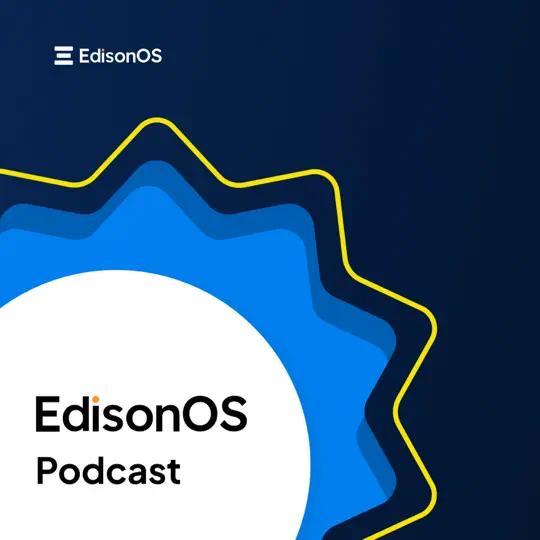




Key Takeaways
- Smart ACT retakes boost superscores, scholarships, and confidence with focused section-specific prep.
- Superscoring and section retakes make every improvement count toward higher composite scores.
- Tutors can turn ACT retakes into data-driven wins using EdisonOS for precision and progress tracking.
As a tutor, you’ve likely seen it: a student finishes the ACT, checks their score, and says, “I can do better.” And they’re often right.
More students are choosing to retake the ACT, not because they failed, but because they’re aiming higher. A higher score can help them secure merit-based scholarships, tip the scales in competitive college admissions, and even boost their superscore by targeting just one or two weaker sections.
With the ACT’s 2025 updates, such as section-specific retakes and official superscore reporting, smart retesting isn’t just common; it’s strategic.
But improvement isn’t automatic. That’s where your guidance will become essential.
In this guide on how to retake the ACT, we’ll show you how to help students make informed retake decisions, build targeted study plans, and use platforms like EdisonOS to turn effort into actual point gains.
Why More Students Are Retaking the ACT in 2025
If it feels like everyone’s giving the ACT a second shot in 2025, you’re not imagining it. More students are lining up for ACT retakes than ever before, and it’s not just about chasing perfection. It’s about strategy, access, and real rewards.
States like Tennessee, Kentucky, and Oklahoma now offer school-day testing and free retake programs. Students no longer need to wrestle with weekend test centers, and they’re getting multiple shots right at school. For example, on Tennessee’s Senior Retake Day, 76% of students took the ACT more than once, and their superscores rose by an average of 2.4 points. That’s not a small bump — that’s the difference between a good scholarship and a great one.
Additionally, the ACT itself has changed, too.
The new Enhanced ACT allows students to retake individual sections instead of the entire test. So, if your student struggled with Math but crushed Reading, they can just retake the section that needs work. Plus, the ACT’s new official superscore system automatically combines your best section scores across all test dates.
Lastly, even with test-optional admissions, high ACT scores still matter. They unlock merit scholarships and set students apart in competitive pools. As ACT.org notes, “a single test point can give you thousands of dollars in financial aid.”
For tutors, all of this means one thing: students have more reasons and more tools to try again, and you can make retakes a part of the strategy itself.
How Superscoring Changed ACT Retake Strategies
Superscoring is a major change to the ACT and a major contributor to retake strategies.
Instead of averaging one full test, the ACT superscore pulls your highest English, Math, Reading, and Science scores across multiple test dates to create a new composite.
So if your student nailed English in April and improved Math in June, the superscore combines the best of both.
Note I: Writing isn’t included, and Science contributes to a separate STEM score.
What’s the impact:
For students: The 2025 rollout allows section-specific retakes, and with superscoring, students can focus on just Math or Reading without redoing the entire test. That means more efficient prep and bigger gains with less burnout.
The superscoring approach helps students look their best, and ACT research shows it actually predicts college performance better than traditional single-test scores.
For tutors: Superscores shifts the retake conversation from “should we do it again?” to “which part should we do again?” Reviewing score reports becomes a section-by-section mission. If English and Reading are strong, zero in on Math or Science.
Note II: Not all colleges accept superscores. Many top schools like Columbia, Dartmouth, and MIT do, but some (like Yale) still want to see all scores from every test date. So tutors should always check which colleges superscore ACT.
How to Decide If a Retake Is Right
Not every student needs to retake the ACT. Since retakes should now be treated as a part of the testing strategy, make the decision when the payoff can be real.
Here’s how you can help your students weigh the option:
- Score improvement potential: About 57% of repeat testers improve, but 21% do not. If the student’s initial score was in the 13–29 range, the typical boost is about +1 point. Compare their actual score to their practice tests, and a retake is likely worth it if practice scores trend higher.
- College and scholarship targets: If the current score falls below a college’s mid-50% range or a merit aid threshold, a retake makes sense. But if it already meets the goals, chasing more points may not justify the time and energy.
- Superscore advantage: Did one section drag the composite down? If target colleges accept superscores, retaking just that section could lift the overall composite. Tutors can help identify which sections to prioritize.
- Test-day disruptions: Illness, nerves, or simple misreads can sabotage a test. If the student feels their score didn’t reflect their true ability, a retake could offer a fair shot with the right prep.
- Time before deadlines: Retakes require runway. Ideally, plan for 2–3 months of prep before the next ACT and ensure score reports will arrive before college application deadlines.
- Effort vs. return: Retaking the ACT takes time and discipline. If a student is already stretched thin or unlikely to gain much, tutors can help them shift focus to essays, recommendations, or GPA instead.
Here’s what a Reddit user had to say about retaking the ACT for a student who scored 30 without studying and felt like he could do better on certain sections:

Tutor Tip: A retake is worth it when there’s a clear goal, a section to target, and time to do it right. Use score reports, target school data, and realistic prep timelines to help your students make confident decisions.
8 Tips for Retaking the ACT
Once you've decided to retake the ACT, the next step is to make it count. A repeat attempt shouldn’t be a repeat mistake. It should be smarter, more focused, and backed by strategy.
That’s where tutors come in.
From decoding score reports to refining test-day pacing, the following eight tips help translate your and your student’s effort into measurable score gains.
Review Score Report in Depth
Every successful retake starts with understanding what went wrong.
ACT’s score report gives valuable insight into which sections underperformed, and even more importantly, which question types caused trouble. From misread science passages to slow math calculations, you can pinpoint what exactly your student needs to focus on in the retake.
If available, use ACT’s My Answer Key (formerly known as Test Information Release) to see the actual questions missed. This allows tutors to identify patterns, such as repeated errors in punctuation, graph interpretation, or word problems. Targeting those patterns makes your prep focused, not frantic.
Set Section‑Specific and Realistic Score Goals
“Improve my score” is too vague. Instead, aim for goals like:
- “Raise Math from 23 to 26”
- “Get three more questions right in Reading.”
Set a composite score target, yes — but use the ACT scoring chart, break it down section by section.
With the superscoring system, this becomes extremely important. Tutors should help students identify where even a 1- or 2-point bump in a section could shift their entire application profile.
Build a Structured, Targeted Study Plan
A study plan that lives in a student’s head rarely comes to fruition. Tutors should help build a clear schedule, which should include:
- Which days to study
- What topics to cover
- When to take full-length practice tests
- How to measure progress.
Pro tip: Prioritize weak sections, but mix in full reviews to keep strong areas sharp. Weekly checkpoints keep students motivated and accountable. Get more digital ACT tips.
Focus on Weak Areas Without Ignoring Strengths
We all want to fix what’s broken, but it’s risky to ignore what’s working.
Yes, you should focus tutoring sessions on the biggest gaps. However, always include a light review of strong sections to prevent backsliding.
Think of it as maintaining your high-scoring “assets” while upgrading the liabilities.
Take Full-Length Practice Tests Under Real Conditions
This one’s non-negotiable.
Practice tests should mimic test day—timed, with breaks and no interruptions. ACT has gone digital, so ensure students are prepping in the same online format they’ll use on test day.
Tutors can walk students through mock exams afterward and assess pacing, confidence, and fatigue. Use what you see to adjust strategy and boost test-day readiness.
With EdisonOS, tutors can take the guesswork out of ACT prep
Our free digital practice test gives students a full-length, realistic ACT experience — and gives you powerful data to guide your retake strategy. Here’s what to expect:
- Mimic the real ACT: From screen layout to timing tools, our interface mirrors the official test.
- Instant scoring + breakdown: Get scaled scores by section, plus insights into timing and accuracy.
- Identify strengths and weaknesses: See where students lose points — and where they’re ready to gain them.
- Start building smarter plans: Use test results to create custom BYOTs and prep plans for each student.
EdisonOS makes it easy to assess, analyze, and act, all in one platform. Ready to see where your students stand?
🔗 Take the Free ACT Practice Test on EdisonOS
Improve Test-Taking Strategy and Pacing
It’s not just what you know, it’s also how you use your time. The ACT is fast-paced, so mastering timing is crucial. Teach students essential pacing techniques like:
- Smart skipping: Move on when stuck, circle back later
- Answer elimination: Narrow choices down before guessing
- Flag and revisit: Don’t waste time wrestling with a single hard question
These small tactical changes often yield big score gains.
Incorporate Mental and Physical Preparation
Test success isn’t just cognitive, it’s also physical and emotional. Help students prep for the human side of the test by encouraging to:
- Get enough sleep
- Eat a brain-friendly breakfast
- Practice stress-management (deep breathing, visualizing success)
- Take breaks during prep to avoid burnout
Mental clarity often makes the difference between second-guessing and scoring higher.
Select the Optimal Retake Date
Timing can make or break a retake. Give your student at least 8–12 weeks to prep effectively, and ensure the test date works with college application timelines.
Also consider superscoring policies. If a student is close to a target score, they might not need to retake the full ACT. Instead, they could retake just one section that’s currently pulling down their composite.
How EdisonOS Helps Here
EdisonOS, built for tutors, offers a flexible, data-driven platform that helps you pivot quickly when a student’s score falls flat.
Instead of digging through spreadsheets or generic test banks, tutors can use EdisonOS’s Build Your Own Test (BYOT) feature to create hyper-focused mock exams in minutes. Whether you're pulling questions from a 5,000+ question library or uploading your own, the result is the same: targeted practice that mirrors exactly what the student needs to work on.
And you’re not left guessing what those needs are.
With EdisonOS’s detailed reporting, you’re not just seeing the final score, you’re also seeing patterns like:
- A drop in accuracy on vocabulary-in-context questions
- Repeated errors in punctuation or sentence structure
- Slower pacing or fatigue in multi-step math problems
- Consistent mistakes in interpreting graphs or data visuals
With this insight, tutors can make more than educated guesses and build smarter sessions that actually move the needle. Here’s what makes EdisonOS for ACT so effective for retakes:
- Real-time tutor mode: Students get immediate feedback on the right answer, the rationale, and a chance to reflect while it’s still fresh.
- Simulated ACT environment: From timers to tools like highlighters and calculators, EdisonOS mimics the official test experience to build familiarity and confidence.
- Section-by-section targeting: Focus prep on underperforming sections by designing customized BYOT assessments.
- Progress tracking + reporting: Weekly analytics show how each student is trending, which areas are improving, and what still needs work — and you can send updates to parents automatically.
EdisonOS gives tutors what they need to support smarter retake prep: fast customization, deep diagnostics, and a test experience that actually feels like test day.
Conclusion and Key Takeaways
A well-timed, well-prepared retake can unlock scholarships, meet admissions benchmarks, and boost a student’s confidence. But the key is doing it strategically:
- Use performance data to guide prep
- Focus on specific section gains (especially with superscoring)
- Balance academics with mental and physical readiness
And you don’t have to do it manually. Ready to see how EdisonOS can power your ACT prep? Book a free demo today.
Frequently asked questions
There’s no official limit, but most experts recommend no more than 2–3 retakes unless there’s a strong reason. Score gains tend to flatten after that.
It depends. Many colleges accept your best scores (often via superscoring), but some require all attempts. Always check each school’s policy.
No — retakes won’t hurt you. Colleges typically consider your highest scores, and a higher result can only help, especially with superscoring.
On average, retakers gain about 1 point, but many improve by 2–3 with focused prep. ACT data shows that 57% of students increased their scores.
Plan on 2–4 months of prep. Start early enough to allow for full-length practice tests and time to target weak sections before your test date.
Only if you need a boost for scholarships or to reach a more competitive college range. If you’ve met your goal, it may be better to focus on something else.










.png)
.webp)
